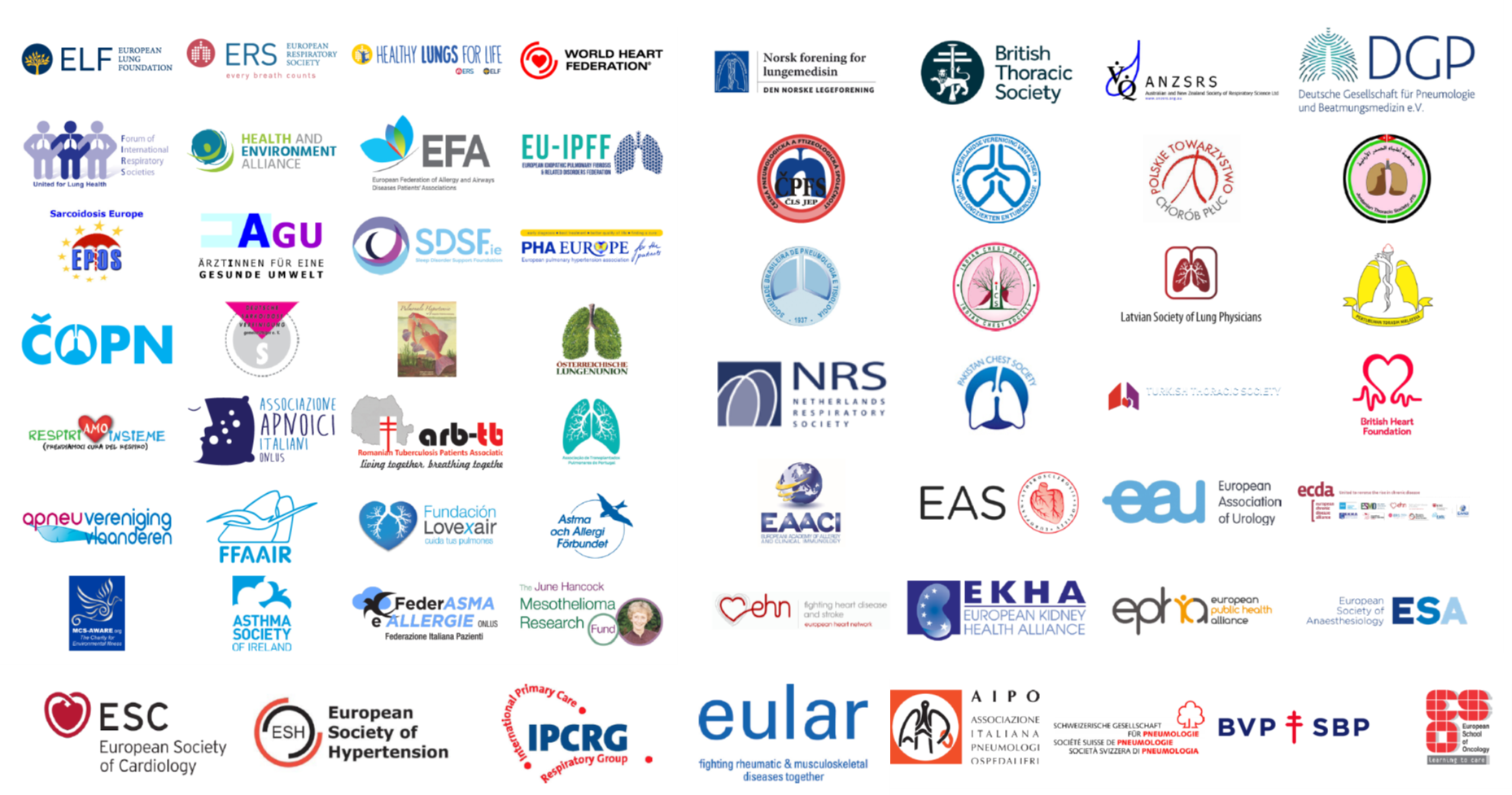A combined action on air quality by medical societies and patient organisations
In 2021, ERS and the European Lung Foundation (ELF), in collaboration with partner organisations, proposed a set of actions to improve air quality.
Recognising the urgent need for action on air quality, medical societies and patient organisations expressed their support to this initiative and pledged to take some measures to reduce air pollution levels. The commitments are focused on the need for better clinical guidelines for healthcare professionals, tools to advise patients and information on how to reduce long-term exposure and avoid short-term peak exposures.
The initiative marked the start of over 50 organisations committing to and starting action in this area.
The combined action came due to the pressing need for action on air quality, both in terms of awareness and education, and in order to take active measures to reduce pollution levels.
•Air quality in many countries is much worse than what WHO recommends in its current Air Quality Guidelines;
• Poor air quality has considerable health effects;
• For many vulnerable populations, not enough is being done;
• Patients, doctors and the public are not properly informed about the short- and long-term health effects of air pollution; and
• Patients and doctors lack knowledge on how to prevent the health effects of air pollution.
Many healthcare professionals are now faced daily with questions and concerns from patients about the impact that poor air quality can have on their health. This holds particularly true for individuals who suffer from chronic conditions, such as asthma, chronic obstructive pulmonary disease, ischemic heart disease, heart failure and diabetes. Children are particularly at risk.
Although the scientific evidence is developing rapidly there are many gaps between this knowledge and public understanding and awareness, including:
• The need to fully understand the long-term effects exposure to air pollution has on human health in a way that is comparable with other risk factors;
• Whether personal monitoring of exposure is worthwhile and, if so, how to make full use of the findings;
• The need to understand which actions an individual can take to reduce exposure, whilst ensuring healthy activities are still maintained and having no negative impact on activities of daily life;
• The need to promote lifestyles that contribute to good air quality everywhere; and
• The need to understand how acute episodes of poor air quality can affect the health of patients living with chronic diseases and the actions they need to take to protect themselves.
Better clinical guidelines are needed for healthcare professionals with clear advice to give to patients with respect to long-term air quality and acute peaks, so that this can be integrated into an individual’s care plan. Primary care also has a role to inform non- “at risk” patients about air quality. The information on air quality in general should also be consistent across all patient groups (respiratory, cardiovascular, diabetes, etc.). Public awareness campaigns are also important to educate the patients and the public.
For healthcare professionals, the following are needed:
• background information on the health effects of air pollution;
• evidence-based advice in clinical guidelines for different patient groups (e.g. asthma and COPD);
• tools to advise patients about air pollution and how to change their treatment plans or activities on high pollution days, and
• information on how patients can reduce long-term exposure and avoid short-term peak exposures.
The pledge
As medical societies, we the undersigned pledge to:
1. Include air quality in the educational programmes of our societies – specifically on how air quality impacts on the lives of the people living with chronic conditions
2. Ensure that clinical guidelines talk about air quality and provide advice for healthcare professionals on how to advise their patients
3. Invest in research on the link between air quality and health, and the implementation and evaluation of measures to reduce air pollution
4. Raise awareness of the issue and make reducing air pollution a priority for all
As patient organisations, we the undersigned pledge to:
1. Explain to our patient populations the impact of air quality on their condition using the best scientific information available
2. Support our patients to deal with episodes of high air pollution and how they can reduce their exposure
3. Raise awareness of the issue and make reducing air pollution a priority for all
Supporters

![]()




